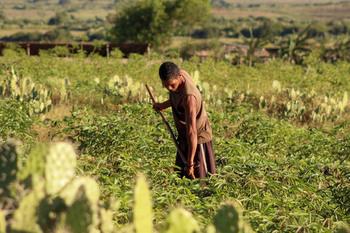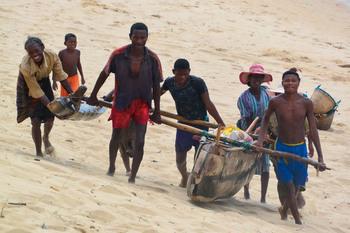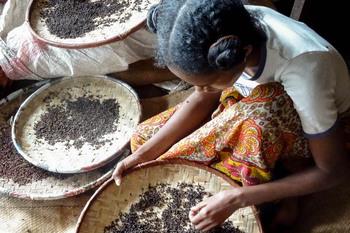Context
Madagascar is one of the world’s poorest countries. Vanilla, cloves and lychees are just a handful of the agricultural products that the country grows. Agriculture accounts for around a quarter of Madagascar’s gross domestic product and the sector provides a livelihood for the majority of the population, employing around 80 percent of the active population. People’s dependency on natural resources is therefore high.
The island nation is one of the countries worst affected by the impact of climate change due to its geographical location in the Indian Ocean. Heavy rainfall, hurricanes and drought – extreme weather events are on the increase in Madagascar. The rising sea levels and loss of fertile land are also causing the country problems. Agriculture needs to be adapted to the effects of climate change in order to protect the livelihoods of many people. This will also make long-term development possible in Madagascar.
The country is dominated by small-scale farming structures and people commonly grow crops on fragmented and poorly accessible land. Farmers and the processing industry are poorly organised and, in many cases, work with traditional crop cultivation and livestock farming practices and processing technologies. All in all, the productivity of agriculture remains at a low level, resulting in serious food crises on a regular basis.
Objective
The efficiency of the actors concerned has increased in the agricultural value chains particularly affected by climate change.


